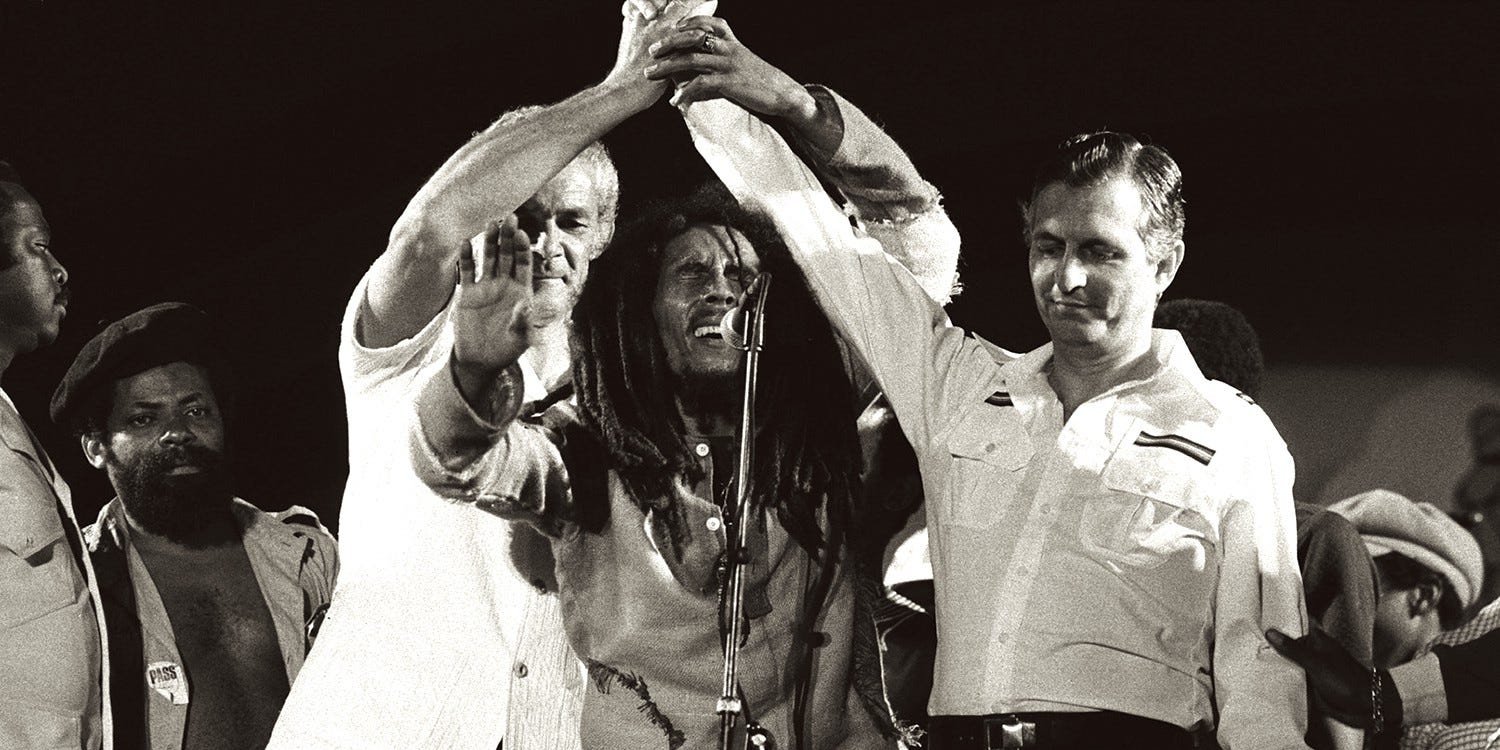Reggae: The Rhythm of Sustainable Tourism and Peace
As we recognize World Tourism Day 2024, with the theme "Tourism and Peace," it’s important to reflect on how cultures, communities, and the arts contribute to sustainable tourism. For many years, Reggae music has and continues to emerge as a powerful, universal vehicle that connects people, promotes social justice, and fosters peace. Rooted in the vibrant culture of Jamaica, Reggae has transcended national boundaries to become a global influence—its ethos of unity, justice, and environmental awareness making it an invaluable tool in promoting the Sustainable Development Goals (SDGs).
From its inception in the streets of Kingston to the stages of North America, the United Kingdom and across the globe, Reggae music has spread far beyond the shores of Jamaica. It has become a cultural phenomenon with a message that resonates deeply worldwide. Reggae’s profound impact on North America and the UK in the 1970s and 1980s, through artists like Bob Marley, Peter Tosh, and Burning Spear, sparked movements for civil rights and social justice, connecting diverse communities with the message of “One Love” and equality. Reggae festivals in cities like London, Miami, and Toronto now draw thousands of global visitors, blending tourism and culture in a way that promotes sustainable economic growth (SDG 8) while reducing inequalities (SDG 10).
Bob Marley's One Love Peace Concert: A Powerful Example
One of the most compelling examples of reggae as a tool for peace and social justice is Bob Marley’s One Love Peace Concert in 1978. This historic event in Jamaica not only united opposing political factions during a turbulent time but also showed how music could bridge divisions and foster reconciliation. Marley’s act of bringing political rivals on stage to shake hands was more than symbolic—it was a demonstration of music’s ability to heal wounds and promote dialogue, aligning with SDG 16, which focuses on peace, justice, and strong institutions.
L-R: Leader of the Opposition party, the Honorable Michael Manley, Bob Marley, Prime Minister Edward Seaga at the One Love Peace Concert, Kingston, Jamaica | April 22, 1978
Reggae Festivals: Catalysts for Sustainable Tourism
Music festivals have become a significant driver of global tourism, and reggae festivals, in particular, draw travelers from all corners of the world. Events like Reggae Sumfest and Lost in Time in Jamaica, Rototom Sunsplash in Spain, and California Roots Festival in the U.S. not only provide entertainment but serve as hubs for sustainable tourism. These festivals contribute to the local economy by supporting small businesses, promoting eco-friendly practices, and engaging local artisans, which aligns with responsible consumption and production (SDG 12). Moreover, these events foster cultural exchange, allowing visitors to experience the rich heritage of reggae while contributing to the preservation of its cultural legacy.
Tourism through music festivals can also promote environmental consciousness. Reggae’s inherent connection to nature—its deep reverence for the environment—mirrors the goals of climate action (SDG 13) and life on land (SDG 15). At many reggae festivals, eco-conscious practices such as waste reduction, carbon footprint management, and community-based tourism initiatives encourage visitors to engage responsibly with the destination.
Empowering Local Communities Through Reggae
Another dimension of sustainable tourism is its potential to uplift local communities. In Jamaica, reggae has always been a grassroots movement, deeply intertwined with the daily lives of its people. By promoting reggae as part of the tourism experience, we can empower local communities to benefit from the influx of global visitors. Community-based tourism initiatives that feature reggae music not only enhance the visitor experience but also provide locals with opportunities for economic development and cultural preservation. This directly supports quality education (SDG 4) and helps reduce inequalities by providing economic opportunities to marginalized communities (SDG 10).
Reggae’s role in sustainable tourism can also extend to encouraging tourists to choose eco-friendly accommodations, support local crafts, and engage with community-based cultural projects. These efforts contribute to sustainable economic growth (SDG 8) and responsible consumption, ensuring that tourism benefits local economies while minimizing its environmental impact.
As we celebrate World Tourism Day 2024, the connection between tourism, peace, and reggae becomes ever clearer. Reggae music, with its universal message of unity and love, offers a unique pathway to sustainable tourism. It encourages travelers to engage more meaningfully with the places they visit, promoting peace, cultural exchange, and environmental sustainability. By embracing reggae as a cultural force within tourism, we can align with the SDGs and foster a global movement toward a more peaceful and sustainable future.
In the words of Bob Marley, “One love, one heart, let's get together and feel all right”—and through reggae, tourism can help build a world where peace and sustainability are in harmony.
